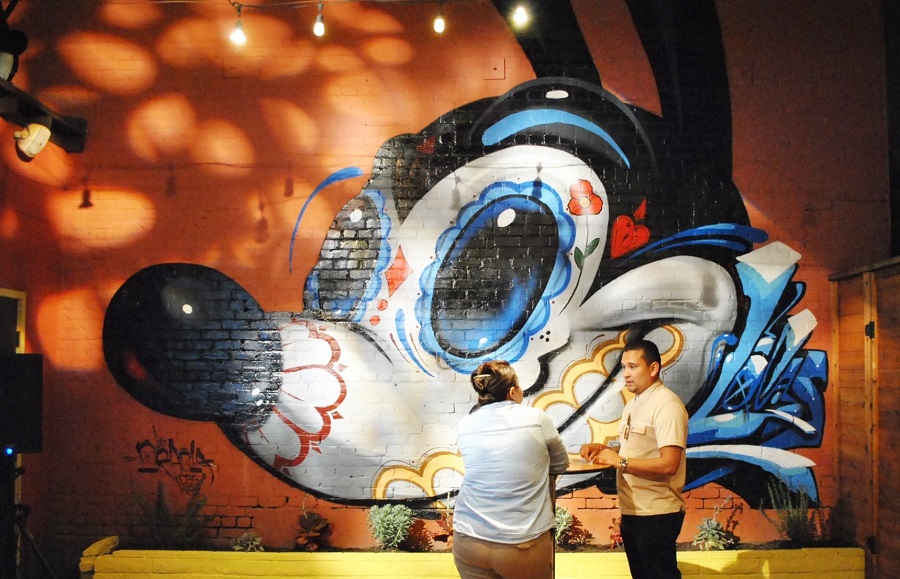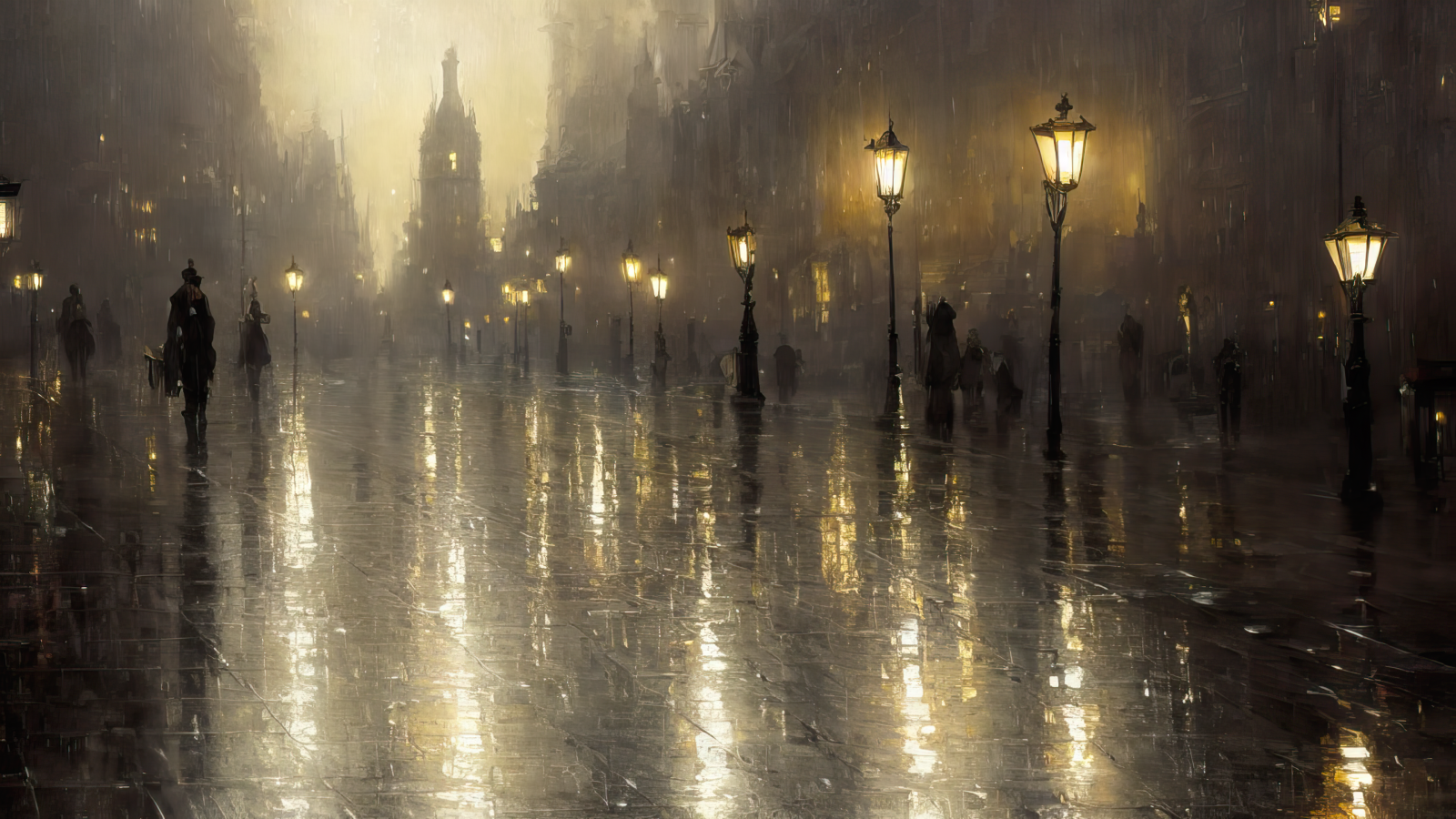Newness is an interesting thing, if we can get away with calling it ‘a thing’. When we use the word ‘newness’ we automatically feel that we have some kind of handle on it (which is of course true for anything we can conceptualize) but when it comes right down to it we don’t know what newness means at all. The term newness can be translated as ‘something about which we know nothing’ – if we knew something about it then whatever it was would be old, not new. Everything we know is old…
There is one thing we can say in relation to newness. We can say that it is ‘something that which we are obliged to fight against the whole time without ever letting ourselves focus on the fact that this is what we’re doing’. Newness is something the existence of which we cannot admit to, in other words. The best way to talk about this is in terms of a game – the game we’re playing here is the game of pretending that there’s no such thing as newness! In order to play this game all we have to do is find something equivalent to newness that isn’t newness, and then carry on with our lives on this superficial basis. Instead of being interested in ‘the new’, we’re interested in ‘the phoney new’. We’re interested in ‘mutton dressed up as lamb’ because lamb itself has been taken off the menu.
We need to have some kind of substitute for the real thing otherwise there could be no such thing as change, no such thing as ‘an actual journey’ and this would of course constitute an intolerable state of stagnation which no one would ever want. The suffering involved in such an obviously stagnant modality of being would be prohibitive and we wouldn’t be able to continue with it. There would be no sustenance for us in it. Once we make the substitution however then our situation is effectively disguised, which is to say, there does appear to be the possibility of change, the possibility of getting somewhere, the possibility of being on some kind of genuine journey. Everything appears to be Hunky Dory.
The way we contrive to have newness where there is none is by rejigging things in a superficial way, which is what Robert do Ropp calls ‘a tiresome ringing in of the changes’ This is what happens in retail – we all get fed up with the prevailing fashion and get excited by some sort of trivial reshuffling of the same basic formula. The more things change, the more they stay the same, in other words! Trivial change becomes the be all and end all and radical change becomes the Great Unmentionable Threat – the thing we are all in denial of. Because there is a latent ennui associated with ‘formulaic change’ we very quickly get fed up with the current fashion and want to move on to ‘the latest thing’, which we will also get fed up of very quickly. Another term for this is ‘ceaseless futile self-distraction’, therefore.
Although this is technically a game (i.e. we are pretending that something is the case when it isn’t) it is at the same time very serious. We’re not playing the game for fun but because we feel we have to, because we are – in other words – maximally averse to discovering that the game is only a game (or discovering that the thing we are saying is true actually isn’t true at all). According to Krishnamurti we’re not afraid of the unknown, we are afraid of the known coming to an end. We are not afraid of the unknown because, when we’re playing the game, we have zero relationship, zero acknowledgement of the radically unknown. It doesn’t figure in our mental maps, it doesn’t figure in our philosophies at all. It doesn’t exist for us and if it doesn’t exist for us how can we fear it? It’s a mythical beast like a Centaur or a Minotaur, and we don’t go around being terrified of Centaurs or Minotaurs. We live entirely in the World of the Known and it never occurs to us that this is a world which we ourselves have made up.
If we don’t acknowledge that there is anything outside of the world of the known then of course we going to fear the known coming to an end. We don’t even have to like the known, or find it interesting which it isn’t dash will stick with it all the same because relating to the real is a risk, and – what’s more -it isn’t a risk we are prepared to take! This is, then, the situation that fear puts us in; this is what’s called ‘attachment’ in Buddhism and Vedanta – we’re not attached because we like whatever it is that were attached to but because we’re afraid of letting go. This is a very miserable state of affairs therefore, even though we are very rarely directly aware of it as being as miserable as it is. Fundamentally, it is a horrifically sterile state of affairs and our only relief from this unremitting sterility comes from the ‘theatrical escapes’ that we are continually involving ourselves in.
All structures, all logical systems, depend for their continued existence upon the denying of the new and this is something we don’t usually appreciate. We don’t appreciate this because we are looking at things the other way around. The World of Form only gets to be ‘the World of Form’ because it is insulated against the new. This is of course profoundly obvious once we think about it – structures only get to be structures because ‘the new’ (or ‘the random’) is very thoroughly excluded. Everything in the structure or logical system has to be regular – anything irregular, or anything unpredictable, would ruin the whole thing and that’s why we are so averse to chaos. That’s why we abominate apeiron in the way that we do. The introduction of the new or the random into the picture causes the orderly structure to fall apart. ‘Regular’ simply means a repeat of the old, and ‘random’ (when we look at things this way) is where this principle of ‘repeating the old’ gets forgotten about, and stuff that isn’t ‘a rerun of the old’ makes an appearance, thus disrupting our neat and tidy scheme of things.
All this talk of structure or form is fine and dandy, but what we are really on about here is the idea we have about who or what we are – which is to say, the everyday unexamined self. And so – although letting go of the old (rather than endlessly repeating it out of fear) – sounds good to us when we first hear it, it doesn’t sound good when we realise what we’re actually talking about here is ‘the self’, is ‘who or what we think we are’. This doesn’t just ‘not sound good,’ it terrifies the life out of us. It sounds like our worst nightmare come true. The fear of discovering that there are possibilities that we ourselves have not authenticated (possibilities that we ourselves have not had a say in) is the repressed terror that lies behind everyday existence, the ontological terror that we mostly manage to keep safely buried.






